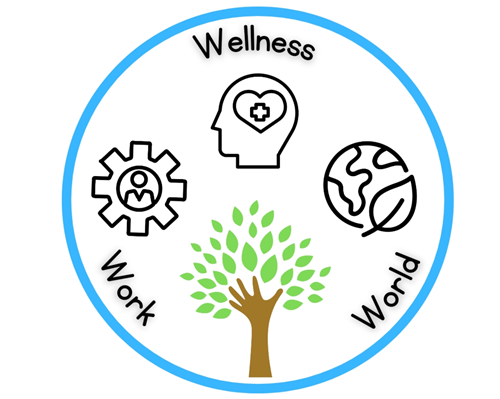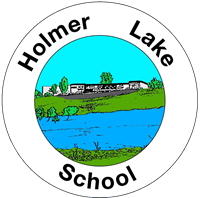Music
Curriculum Leader - Mrs. Watson and Miss. Baylis
Subject Leader - Miss. Baylis
Link Governor - Mrs. McCormick
Click here to access our Music Development Plan.
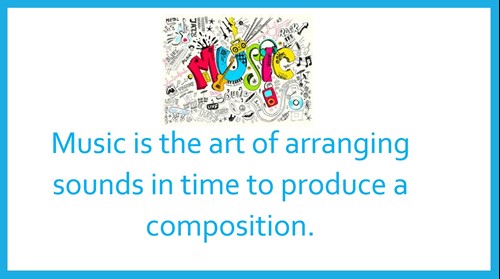
‘Music is a universal language that embodies one of the highest forms of creativity. A high-quality music education should engage and inspire pupils to develop a love of music and their talent as musicians, and so increase their self-confidence, creativity and sense of achievement.’ (The National Curriculum)
At Holmer Lake, music is fully inclusive to every child. Our aim is to fulfil the National Curriculum by providing a broad and balanced curriculum that ensures the progression of knowledge and skills. Our 2-year rolling music curriculum, underpinned by our drivers – Wellness, Work, Word - aims to inspire creativity, self-expression and encourages all our children on their musical journeys as well as providing them opportunities to connect with others. We aspire to foster a lifelong love of music by exposing them to diverse musical experiences and igniting a passion for music. By listening and responding to different musical styles, finding their voices as singers, performers and as composers, will enable them to become confident, reflective musicians.
The aims of our Music curriculum are to develop pupils who:
- sing and use their voices individually and in a group.
- compose music on their own and with others.
- use technology appropriately when composing.
- learn a musical instrument.
- understand and explore how music is created, produced, and communicated.
- listen to, review, and evaluate the work of great composers and musicians from a range of historical periods, genres, styles, and traditions.
- enjoy and have an appreciation of a range of different musical styles.
- use and understand musical
- make judgements about the quality of music.
- have the opportunity to play a wide variety of instruments.
- have the opportunity to take part in performances.
At Holmer Lake, our aims are fulfilled by providing a scheme of work that identifies curriculum end points. There is a clear progression of knowledge and teaching of key concepts. The key concepts that have been identified are the “golden threads” that are revisited throughout the music Curriculum. The golden threads support children’s ability to make links in their learning, so new knowledge builds on what has been taught before. As they move through the school, they will develop confidence in communicating their knowledge and understanding using specialist vocabulary.

An example of Music End Points.

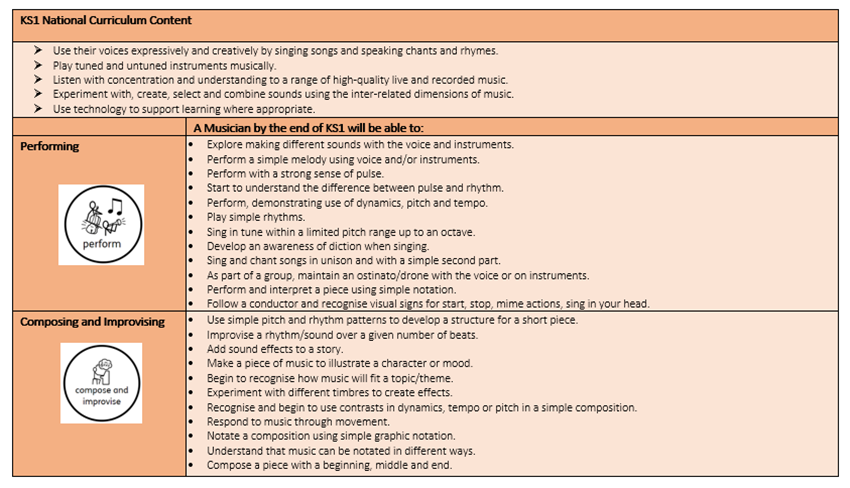
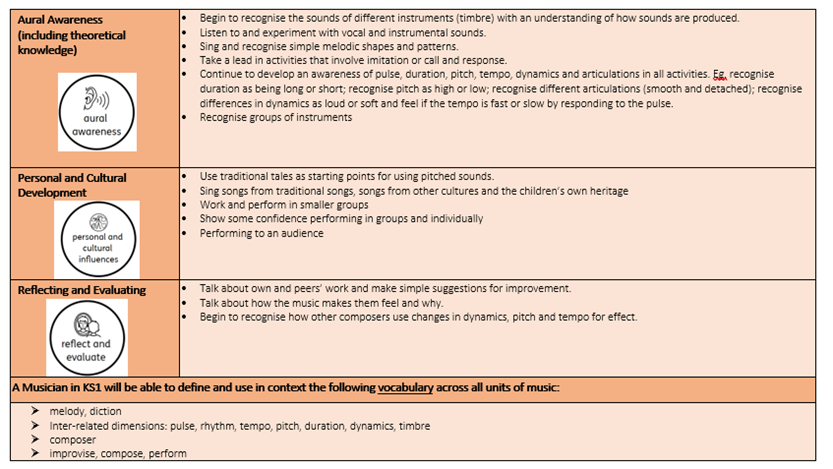
Click here to see the Music Curriculum Overview
EYFS
The golden threads of the music curriculum are established in EYFS. Pupils begin to develop an understanding of music through learning songs and rhymes, engaging in music making and performing and listening and responding to music, expressing their ideas and feelings.
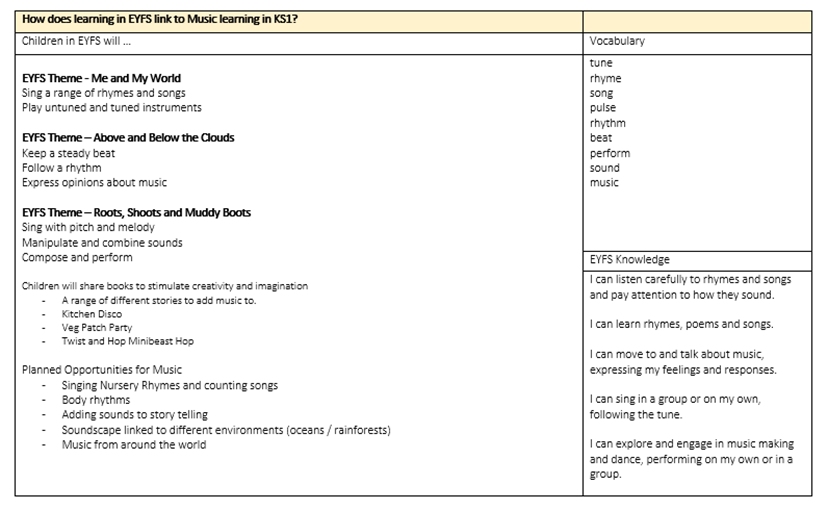
SMSC and British Values
The music curriculum supports the spiritual, moral, social, and cultural development of our children. British Values are actively promoted and embedded into the music curriculum. We enhance our children’s understanding of their place in a culturally diverse country by providing them opportunities to:
- Respond and reflect on different genres and styles of music.
- Explore emotions provoked by listening and playing music.
- Use imagination when performing and composing.
- Show respect towards all genres of music and towards others through group work.
- Explore moral issues in music through music history and listening to different styles.
- Collaborate in performing and composing through working in groups and as a whole class.
- Work as part of a school community through taking part in school shows.
- Perform outside of the school environment, e.g. in a theatre or church and interact with a variety of people as a result- parents, grandparents, the local community, other schools.
- Develop an appreciation of a wide variety of music from around the world and the UK.
- Understand the different musical heritages of the music they perform and listen to.
SEND
At Holmer Lake Primary School we actively seek to remove the barriers to learning and participation that can hinder or exclude individual or groups of pupils. All children benefit from quality first teaching in the classroom where teachers set high expectations, cater for the needs of individuals, and provide opportunities for all pupils to achieve and progress. Teachers are aware that pupils bring different experiences, interests, and strengths to school which influence the way they learn. Teachers plan and adapt their approaches to teaching and learning so that all pupils can take part in lessons fully and effectively. For example, in music, a pupil may require a simplified version of a piece of music, symbols to support notation or scaffolded graphic scores.
Curriculum Drivers
The Music curriculum provides opportunities for children to develop their understanding of how the present World they live, is impacted by the music and musicians of both past and present. Learning about about musicians and how to play an instrument provides children with a base on which to develop their own Work aspirations and sense of opportunity in their futures. Children are encouraged to use their music for enjoyment, which is important for their health, Wellness and being.
